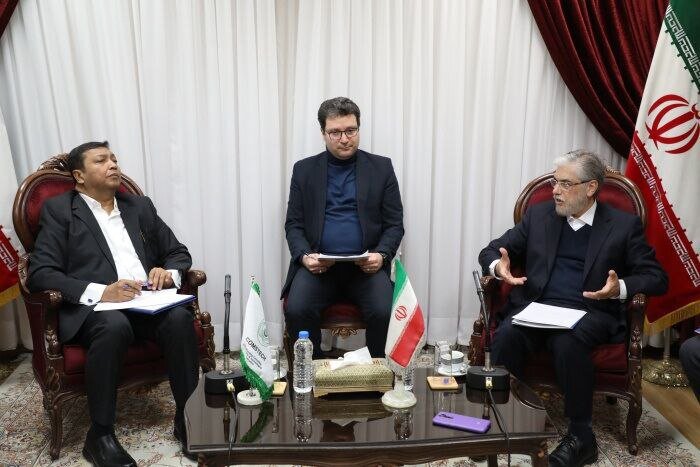COMSTECH secretariats in Iran to be strengthened

TEHRAN –The Ministry of Science, Research, and Technology is planning to strengthen the three secretariats affiliated with the Ministerial Standing Committee on Scientific, and Technological Cooperation (COMSTECH), whose headquarters are in the country.
These three secretariats are the network of virtual universities of the Islamic world, the network of nanotechnology, and the network of science and technology parks, IRNA quoted science minister Hossein Simaei-Sarraf as saying.
The official made the remarks in a meeting in Tehran on Monday with Muhammad Iqbal Choudhary, the coordinator general of COMSTECH.
During the meeting, Simaei-Sarraf highlighted the high capacities of Iranian scientists in conducting scientific and technological projects and called for mutual and synergistic relations between Iran and COMSTECH.
Iran targets world’s 12th spot in science production
Despite ongoing sanctions, Iran is planning to elevate the country’s ranking for scientific productions from currently 17 to 12 by 2027.
Due to sanctions, economic restrictions, and the limitations on publishing papers by Iranian scholars, particularly during the last three years, Iran’s ranking in scientific productions has lowered from 15 to 17, Shahin Akhoundzadeh, an official with the health ministry, has said.
The country’s advancement in science production requires compensating for the regression in research and technology through providing funds, facilitating research, and promoting meritocracy which will reduce young elites’ migration, as well, the health ministry’s website quoted Akhoundzadeh as saying.
COMSTECH
COMSTECH the Ministerial Standing Committee on Scientific and Technological Cooperation of the Organization of Islamic Cooperation (OIC) was established by the Third Islamic Summit of OIC held at Makkah, Saudi Arabia in January 1981.
The core mandate of COMSTECH is to strengthen cooperation among OIC Member States in science and technology (S&T), enhance their capabilities through training in emerging areas, undertake follow-up-actions and implement the resolutions of the OIC, and draw up programs and submit proposals designed to increase the capability of the Muslim countries in science and technology (S&T).
The ultimate aim is to build and nourish a scientific culture in addition to using S&T as a major contributor to socio-economic development and rapid industrialization.
COMSTECH works in close collaboration with various Standing Committees and other organs of the OIC, Member States of the OIC, and their major Scientific and Technological Institutions, in addition to some international organizations.
Some organizations include the World Academy of Sciences (TWAS), Islamic World Educational, Cultural and Scientific Organization (ICESCO), Islamic World Academy of Sciences (IAS), Islamic Development Bank (IsDB), Global Environment Facility (GEF), United Nations Environment Program (UNEP), United Nations Development Program (UNDP), International Foundation for Science, (IFS), World Health Organization – Eastern Mediterranean Regional Office (WHO–EMRO).
MT/MG
